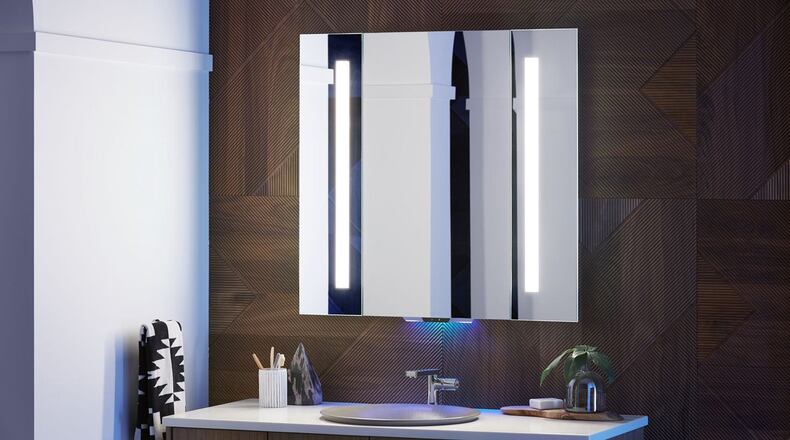Google is trying to make a splash with its share of new gizmos that can be controlled by its Google Assistant. GBH Insights research chief Daniel Ives attributes the competition to the growing importance of software that can be used to manage other internet-connected devices.
Intelligent speakers, like Amazon’s Echo and Google’s Home, are “quickly becoming the core foundation of smart homes,” he said. Analysts say some consumers find it more natural to manipulate smart devices like door locks, lightbulbs and televisions with their voice instead of smartphone apps or dedicated remotes.
The competition to build software people can manage with their voice is one of the hottest topics in consumer technology, drawing, in addition to Amazon and Google, the attention of giants like Apple, Microsoft and Samsung.
Some of those companies have strengths Amazon can’t match. Google’s Assistant can be summoned on Android smartphones, and Siri lives on Apple’s iPhones. Microsoft’s Cortana digital assistant is installed by default on Windows 10 computers.
But Amazon is leading the race to make software that can control other machines.
The company largely invented the modern smart-speaker category with the summer 2015 launch of the cylindrical Echo speaker. At the same time, Amazon offered a set of tools designed to help other companies build Alexa into their own devices.
Amazon stole the show at last year’s CES, with manufacturers announcing a wide range of new integrations between their products and Alexa.
Since then, the company has launched a refreshed line of Amazon Echo speakers, including a model designed to make it easy for consumers to get started using Alexa to manage their lightbulbs, refrigerators and televisions.
The company doesn’t disclose sales of Echo devices beyond a year-end news release touting the sales of “tens of millions” of Alexa-enabled devices during the holiday season. Analysts with RBC Capital Markets estimated that Amazon sold 33 million Echo devices in 2017, up from 4 million the prior year.
During the media days before the kickoff of CES newly announced Alexa-enabled devices ranged from classic electronics (a Hisense television, a Garmin GPS device), to cutting edge (a $1,000 pair of smart glasses).
Other devices seemed to extend the definition of smart home to new corners. A Kohler-branded mirror, the Verdera Voice Lighted Mirror, has embedded microphones and speakers, bringing Alexa to the space above the bathroom sink. Customers can also use voice commands to turn the mirror’s embedded lights on and off, and tap into the rest of Alexa’s skills, like asking for a weather report.
The 24-inch model starts at $1,332.
Alexa is also making its way deeper into the realm of Microsoft’s Cortana. Lenovo, HP and other major personal computer makers announced this week that some new computer models would include the ability to converse with Alexa.
About the Author
